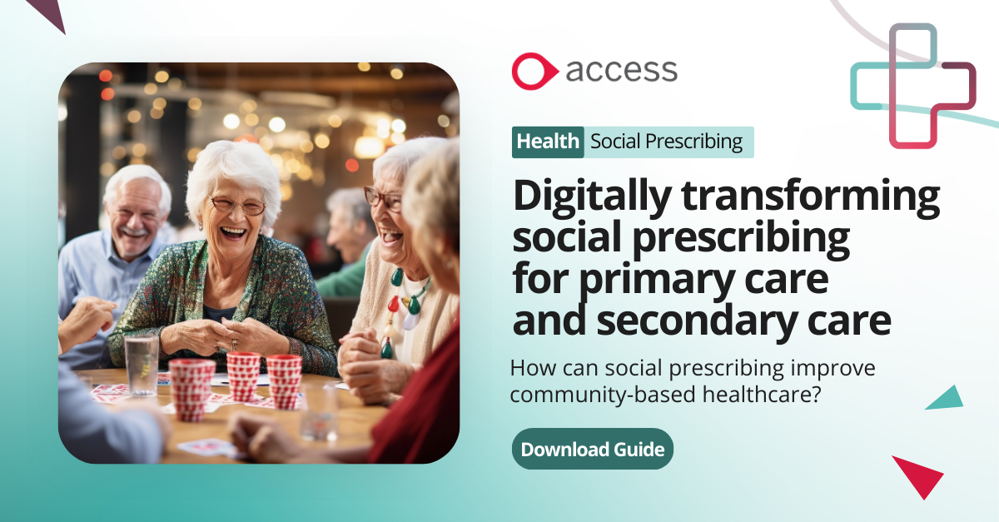
Mental health social prescribing – How common are mental health conditions in the UK?
In recent years there has been a variety of research reporting the amount of people which have or are suffering with different mental health conditions. 1 in 6 people are reporting that they are experiencing a common a mental health problem such as anxiety or depression in any given week, and 1 in 5 people are experiencing suicidal thoughts over their lifetime.
Research by Mental Health Foundation found that:
- 78% of GPs had prescribed an antidepressant in the previous three years, despite believing that an alternative treatment might have been more appropriate.
- 66% of GPs had prescribed antidepressants because suitable alternatives were not available.
- 62% of GPs prescribed antidepressants because there was a waiting list for the suitable alternative.
- 33% of GPs prescribed antidepressants upon patient’s requests.
- Of these GPs that were surveyed 60% of them agreed they would prescribe antidepressants less if other options were more readily available.
This research clearly indicates something needs to happen and more suitable alternatives need to be offered to promote good mental health and wellbeing on a national level. Social prescribing offers this suitable alternative and a further opportunity to respond effectively to early stages and symptoms of mental distress, as well as initiate a more proactive approach to mental health promotion.

Mental health social prescribing in Secondary Care
Primary care refers to the first port of call for a patient when unwell, and for most people this means seeing a GP at their local surgery. Secondary care is the next step along in the system; specialist care services with advanced knowledge on specific areas of health – in this case mental health and psychological conditions.
Escalation to these secondary care mental health services will often come from a patient’s poor mental health resulting in some form of hospital admission, though it can also be through repeated use of GP services.
Secondary care is where the desired alternatives to immediate medication can be delivered, but there is currently a two-year waiting list to see mental health specialists on the NHS. This is why the problems raised by GPs are happening. The options for a GP are to medicate the severely affected patients or to recommend self-teaching cognitive behavioural therapy (CBT) and mindfulness to those less at risk – as was the case for one of my colleagues here at The Access Group who suffers from anxiety disorder.
The delays within secondary care have been investigated by NHS England, and the following feedback was given:
- Clinicians are spending too much time (approximately two hours per day) on non-clinical issues due to a lack of paperless work. Digitisation is needed to reduce duplication, repetition, and data errors, and until that is achieved this is limiting the number of clinical appointments they can deliver.
- It is difficult for clinicians to find approved, reliable community support as they do not have a list of assured and NHS- compliant suppliers. This is wasting time searching.
- Trusts lack visibility of progress on the outcomes for a patient through social prescribing because of no direct referral audits.
- Trusts lack access to the full range of patient medical data due to software not sharing information across clinical systems. These ‘data silos’ hinder better decision-making at best and at worst put patients at serious risk, whether through inappropriate action taken or poor data security.
- Currently there are no safe and secure referral pathways in place to designated Social Prescribing roles (e.g. Link Workers, Health & Wellbeing Coaches, Care Coordinators, Mental Health Practitioners).
- There are no safe and secure referral pathways in place to refer patients to locally-based community organisations for additional support.
- Clinicians aren’t qualified to deliver support in some areas (e.g. socio-economic). This can make it difficult to choose the appropriate next step for referral, which in turn is causing a backlog. Clinicians are subsequently bearing the blame and strain of the backlog, which is leading to stress, sickness, and a difficulty with staff retention.
Social prescribing and mental health – what needs to be done
The main objective here has to be the onboarding of a social prescribing software solution; to digitise the workload and reduce non-clinical burden, but also to provide secure data sharing between clinicians and an integrated healthcare system.
NHS England already has frontline digitisation goals in progress with trusts across the country, but there’s another opportunity that secondary care could utilise in the meantime.
DIALOG+ is an intervention approach for mental health. DIALOG is an 11 question scale about life satisfaction in different parts of their daily existence and treatment aspects. DIALOG+ takes this further and is more patient-centric; it focuses on routine patient-clinician meetings and tackling quality of life issues in a more engaging manner. The four objectives for mental health specialists are:
- Understanding
- Looking Forward
- Options
- Agreement
Research by Priebe et al from 2015 and 2017 respectively showed that by engaging with a patient in this manner, better quality of life was achieved, mental anguish symptoms were diminished, patients were more objective about their own state of mind, and there was even a cost-saving.
If a hospital were to run a DIALOG survey initially at the point of referral then they could immediately utilise social prescribing whilst a patient is waiting for the DIALOG+ care. This would allow them to provide initial CBT as an opening engagement with the patient and to broach self-management of wellbeing before progressing to DIALOG+ or community-based care depending on what was needed.

Why is social prescribing important for improving mental health?
Social prescribing is important for improving mental health because it offers one route to providing psycho-social or practical support to people of all ages, backgrounds, and needs including:
- Children with ADHD, Autism or learning difficulties
- Vulnerable and/or people who are at risk, e.g., low-income single mothers, recently bereaved people, the elderly, people with chronic physical illness
- People with mild to moderate depression and anxiety or those who suffer from social isolation
- People with long term and enduring mental health problems
In order to re-shape mental health services, social prescribing has been identified as a means of self – management which connects individuals into the community and non-medical sources of support to improve their health and wellbeing.
Social prescribing for mental health – 10 ways to help
For people who are suffering from anxiety, are depressed, or have other long-term health problems, social prescribing helps to tackle the root cause of the problem, not just the symptoms.
The great thing about social prescribing is that it can benefit a whole range of people from different backgrounds in different ways. Social prescribing doesn’t just help people suffering with mental health conditions, it can offer support in a wide range of other areas too including: housing, education and employment as well as exercise programmes.
Even though social prescribing isn’t a new concept, by embedding social prescribing into the NHS’ universal comprehensive care plan social prescribing is a great way to practice person-centered care.
Here are 10 ways social prescribing can improve mental health:
- Access to support: Social prescribing supports people suffering with poor mental health to access non-clinical services as part of a package of care. Referring people into community programmes and non-clinical support can boost self-confidence and self-esteem, helping build a sense of purpose, and connecting with others.
- More treatment options: Social prescribing allows individuals to connect to multiple sources of support for social issues related to their mental health which contributes to improving psychological and social wellbeing. Additional, non-medical interventions at a community level can offer more appropriate avenues for problem resolution than a purely clinical response.
- Low complexity: Social prescribing is not an intense interaction. It is a collaborative approach where individuals work with a link worker/community navigator to co-create their social prescription, to achieve their personal goals whilst providing them responsibility and accountability of their own mental health.
- Patient empowerment: Patient engagement is an important goal for both primary and secondary healthcare. Including a patient in their treatment decisions, making sure they understand, and giving them the power to choose and to assess their own care is huge for giving confidence. Control is reassuring, and this sense of autonomy is a good thing.
- Skills development: Social prescribing also presents the opportunity for individuals to learn new skills such as cooking, painting, and mindfulness, with evidence showing that continuing to learn throughout life can improve and maintain our mental wellbeing.
- Shorter waiting lists: Social prescribing can engage with patients whilst on a clinical waiting list. This can either engage them in the meantime and make the wait less frustrating, or resolve the problem before a clinician ever gets involved.
- Proactive, preventative care: Earlier intervention with mental health concerns can reduce the likelihood of escalation. Social determinants are often present, and social prescribing can help alleviate some of these stresses through community level action.
- Reduced isolation: Loneliness is a huge cause of mental health problems. The anguish that comes from isolation and feeling unloved, unwanted, or even shunned can cause the psyche to really spiral into heavily negative thoughts. Social prescribing can promote activities, groups, sessions etc to encourage engagement.
Social prescribing programmes and services such as Men’s Sheds and community groups reduce social isolation as they provide opportunities for people to engage with their community, leading to increased inclusion, belonging, and maximised social contact. - Healthy body, healthy mind: Green social prescribing connects people in nature-based activities like gardening projects and walking schemes to help improve mental health and wellbeing. There is an increasing amount of evidence that spending more time outside and in nature improves your mental health and green social prescribing allows individuals to connect with nature, their community, and themselves too.
- It’s a digital world: Using digital social prescribing allows more people to access and engage in social prescribing services and help people stay healthy through lifestyle changes instead of turning to medication. Websites and apps on your phone are convenient and easy to use, making the interaction and engagement less taxing.
Holistic care is important. A holistic approach considers the clinical, but also social, economic, and even environmental factors for why a person’s mental health is being impacted. Social prescribing is holistic – in a way that a clinician alone couldn’t support a patient. The best care is joined-up care, provided by multiple people or teams to give a rounded approach to wellbeing. A broader approach to care through proactive interventions can and will save the NHS thousands of clinical hours and money in the process as patients are helped before they deteriorate into an urgent care situation.
Social prescribing for mental health – The next steps
With more organisations now adopting community and person-centred approaches to improve mental health, we are pleased to see that the Department of Health and Social Care, NHS England, and Public Health England are working with VCSE organisations to deliver better health outcomes and support people, families, and communities to manage their mental wellbeing.
Discover how you can embed social prescribing into your treatment strategies and use our digital social prescribing software to manage more referrals whilst improving your community’s mental health. Social prescribing works, and we want to help others experience the benefits too.

 AU & NZ
AU & NZ
 SG
SG
 MY
MY
 US
US
 IE
IE

